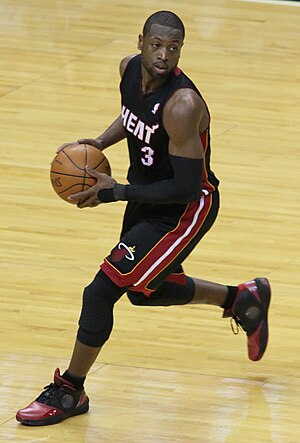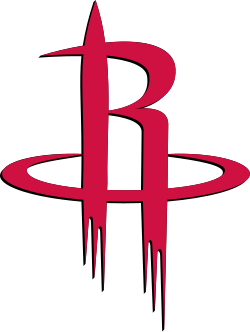 |
| English: Gregg Popovich, head coach of the San Antonio Spurs, against the Denver Nuggets, Dec 22, 2010. (Photo credit: Wikipedia) |
David Stern’s response was swift and aggressive in tone. Once word leaked that Spurs coach Gregg Popovich had decided to rest four of his core players (Tim Duncan, Tony Parker, Manu Ginobili and Danny Green) in Thursday night’s matchup against the Miami HEAT, Stern pledged to take action.
”I apologize to all NBA fans,” Stern said. ”This was an unacceptable decision by the San Antonio Spurs and substantial sanctions will be forthcoming.”
These are but a few highlights on Gregg Popovich’s resume. He is one of the greatest coaches to ever stand on an NBA sideline. I assume we can all agree that the man has a pretty solid understanding of what it takes to win in the NBA, no?
Yet, somehow, millions of NBA fans across the land, countless folks on Twitter, and media pundits in print and online, feel comfortable telling Popovich how to do his job.
More to the heart of the matter: Does David Stern have a more complete understanding than Popovich of what’s best for San Antonio as a franchise?
Via these forthcoming “substantial sanctions,” Stern is about to set an incredibly dangerous precedent, and may well lead the NBA down an incredibly slippery slope.
Stern, and others, claim that Popovich is guilty of “embarrassing” the NBA. However, this is NOT the first time Popovich has partaken in the practice of resting his best players. Last season, Tim Duncan got a night off, and received a “DNP-Old” next to his name in the box score. The interents laughed and laughed.
The only difference last night was the NBA’s reaction to Popovich’s decision. The main beef seems to stem from the fact that Spurs were playing on national television against the mega-popular Miami HEAT.
Last April, after Pop rested his top guns (and even himself, by not making a road trip), NBA deputy commissioner Adam Silver went on the record, stating the NBA did NOT have an issue with this concept. “The strategic resting of particular players on particular nights is within the discretion of the teams. And Gregg Popovich in particular is probably the last coach that I would second-guess,” said Silver
Apparently, this time the actions were unacceptable because Pop chose to sit his stars during a nationally televised game on TNT.
Key Spurs sitting angered many people; nobody is disputing that. Most fans who paid for a ticket to the arena, as well as the millions of others that sat down on their couch in front of their TV’s would obviously prefer to watch the Spurs matchup against the HEAT with a full compliment of players. We all agree on that point. The question is simply this: Why should Gregg Popovich care about anything other than what he believes puts his team in the best position to win an NBA championship?
The goal of any great franchise is to win a title. Period. It’s not to help sell tickets, or drive up rating for TV networks. If a coach decides that resting his veterans for a regular season game in November gives them even a slightly better chance of winning a playoff game in June, then that coach should do what he believes is right; regardless if it affects other people’s viewing experience.
Here are Popovich’s comments prior to tip-off last night (courtesy of the AP): ”Everybody has to make decisions about their schedule, about players playing and back-to-backs and trips and that sort of thing. ‘In our case, this month we’ve had 11 away games, after tonight. We’ve had an eight-day trip and a 10-day trip, and we’re ending it with four (games) in five nights here. I think it’d be unwise to be playing our guys in that kind of a situation, given their history.”
”Perhaps it’ll give us an opportunity to stay on the court with Memphis on Saturday night,” Popovich said. ”Historically, when you’re on a long road trip, that first game when you come home is really tough. And Memphis is one of the best teams in the league. They’re of much more concern to us than playing four games in five nights. It’s pretty logical.”
Towards the end of every season, the NBA universe seem to inevitably stumble into the debate over which teams are “tanking” and what their punishments should be. I have to admit, I always find it humorous, this idea that every team should always go all out in an effort to win every regular season game, as if that’s all that matters. The argument that a coach shouldn’t play his rookies down the stretch of a lost season is ludicrous. This short-sighted viewpoint simply isn’t practical. Again, the objective of every organization is to a win a championship. All moves/ signings/ trades/ decisions should be made with that end-goal in mind. For instance, on July 11, 1996, the Lakers traded their starting center, Vlade Divac, to the Charlotte Hornets for a skinny kid out of high school named Kobe Bryant. Kobe was obviously not ready to contribute on the NBA level as an 18 year-old, while Divac had a fine season for the Hornets in 1997. The short-term result was the Lakers taking a slight step back in the trade’s immediate aftermath. But, looking back at the big picture, I don’t think any Lakers fans have a problem with Jerry West’s decision.
Sometimes teams have to make small short-term sacrifices, in order to win big down the road. And who would have a better idea of what’s best for San Antonio long-term: Gregg Popovich or David Stern?
Furthermore, what if Stern had forced Pop to play his stars last night, and Duncan and Parker bumped knees in the 1st quarter? What happens if Manu Ginobili sprained an ankle and misses two weeks? Would Stern then feel “embarrassed?” Popovich would be the one forced to deal with the consequences of bending to public sentiments.
http://www.hoopsworld.com/a-dangerous-decision-by-david-stern/



















